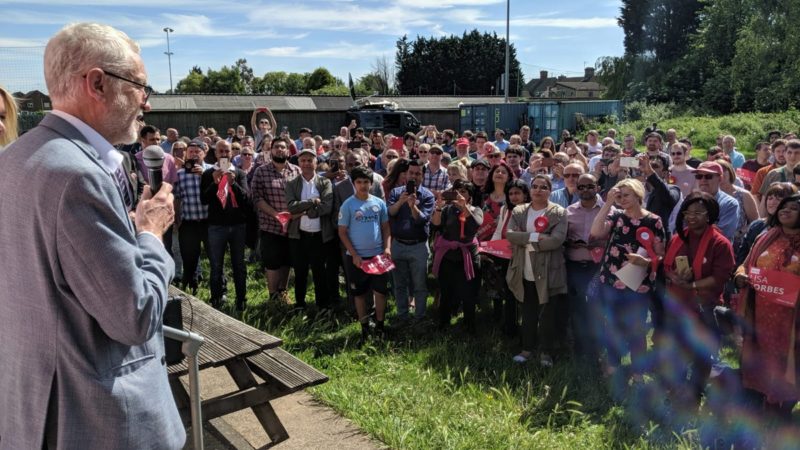
When the people of Peterborough successfully recalled their MP, after Fiona Onasanya had been sentenced to a term of imprisonment for perverting the course of justice, the challenge for Labour to hold the seat seemed enormous. This was a constituency we had won, unexpectedly, by just 607 votes in 2017. A seat that voted by over 60% to leave the European Union. A seat where our MP had been sentenced to jail and very publicly turfed out by the voters.
As the Tories collapsed after delaying Brexit and Nigel Farage’s Brexit Party surged, the scale of the challenge for Labour did not look any less intimidating. On the eve of polling day, the Brexit Party were 1/5 favourites to win Peterborough. The bookies and the Murdoch press talked up their chances and how they were ‘on course’ to take the seat.
So how did Labour win? As a former regional organiser for the party in the East of England and someone who has spent a lot of time in Peterborough over the years, I knew what a tough fight it would be. But I also knew about the momentous behind-the-scenes campaigning and mobilisation work that was taking place. Labour won in Peterborough thanks to a huge amount of planning and organisation, which had been not just weeks but many months in the making.
From Fiona Onasanya’s first trial as early as last autumn, regional party staff looked seriously at the nuts and bolts of a campaign including infrastructure, resources and member mobilisation and what was needed to deliver an effective campaign, with regular visits to the constituency. Throughout January, long before the recall petition had even begun, the campaign was already speaking to thousands of people every week and this contact rate continued right through to polling day.
When the recall petition launched, it was Labour that led and fronted the campaign in favour of the petition, with the support of regional trade unions. Effective use of social media meant we were able to communicate our message in a targeted way. As a party, we successfully distanced ourselves from Onasanya and neutralised this as an issue with voters.
On messaging, it was acknowledged at an early stage that Labour would only lose votes by talking about our position on Brexit. The campaign therefore established a narrative and framework based on local issues, especially around better schools, safer communities and cleaner streets.
Finally, we prioritised member mobilisation. The support of a huge number of committed party activists from the eastern region and beyond, plus a ruthless focus on get-out-the-vote (GOTV), meant that our vote turned out significantly better than was expected for a parliamentary by-election.
Regional staff don’t always get the credit when things go well as they did yesterday, but they will always take the blame if things go badly. Their planning, organisation and sheer dedication to our party, supported by the efforts of hundreds of members and activists from across the region and country, delivered in Peterborough against the odds. A campaign powered by brilliant people, committed to our cause. That’s how hope won and Nigel Farage’s damaging and divisive campaign for Peterborough lost.




More from LabourList
Antonia Romeo appointed to lead civil service as new Cabinet Secretary
‘If Labour is serious about upskilling Britain, it must mobilise local businesses’
Stella Tsantekidou column: ‘What are we to make of the Labour Together scandal?’